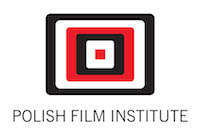Structural Constellations
What is it about? (Includes video presentations) Matthias Varga von Kibéd presents Structural Constellations Participants Participants' Comments Benefits for Participants Programmes and Schedules of the 2 Modules Applying for Structural Constellations 2018: CLOSEDPartners
 FOCAL (Lausanne, Switzerland)
FOCAL (Lausanne, Switzerland)
The foundation is dedicated to professional training in cinema and audiovisual media and has been monitored by the industry for over fifteen years. Its program is conceived and designed to complement and enhance a practice-oriented, life-long learning process. FOCAL operates nationally and internationally. The quality of its programme and lecturers attracts participants from around the world. Successful collaboration with European institutions and partners in the profession plays an important role in networking for film and audiovisual professionals.
 Austrian Film Institute (Vienna, Austria)
Austrian Film Institute (Vienna, Austria)
The Austrian Film Institute was established 1981 in order to provide comprehensive funding for the Austrian film industry in its cultural and economic aspects as well as to further develop the traditions of Austrian film. Based on the Film Subsidies Act ("Filmförderungsgesetz"), the Film Institute is a legal entity under Public Law and its registered office is located in Vienna.
 Norwegian Film Institute (Oslo, Norway)
Norwegian Film Institute (Oslo, Norway)
The Norwegian Film Institute administers government financial support and other support mechanisms for the development, production and distribution of Norwegian audiovisual productions. The Institute is the national centre for the development of talent and ideas in the Norwegian film, television and games industry and is working actively to promote film culture and the Norwegian film heritage among a wide audience. The Norwegian Film Institute comprises departments for Development and Support, Promotion and General Public Affairs, as well as Administration and Information.
 Swedish Film Institute (Stockholm, Sweden)
Swedish Film Institute (Stockholm, Sweden)
The Swedish Film Institute is a foundation that was founded in 1963 by the Swedish state and the various professional bodies of the film industry. Its remit — to support the production of new films, the distribution and screening of worthwhile films, to preserve and promote Sweden's film heritage and to represent Swedish film at an international level — is defined in the Film Agreement and in the annual document of grant appropriations from the Ministry of Culture. The Film Institute is financed by a combination of state funding and the Film Agreement, which stipulates a ten percent levy on cinema admission charges. The current organisation, effective from November 2008, is divided into five departments: Production & Development, Audience & Promotion, Film Heritage, Administration and Communications.
 Wajda School (Warsaw, Poland)
Wajda School (Warsaw, Poland)
(formerly The Andrzej Wajda Master School of Film Directing) focuses on art house films and international co-productions. The Studio makes a difference through artistic supervision from the best Polish and European artists, and by playing an emphasis on project development. It offers script doctoring and the production of short fictions and documentaries under the "30 minutes" program and „First Documentary” program. The Studio runs the EKRAN — International Program for Film Professionals.

The Federal Office of Culture (Bern, Switzerland) supports film production and access to film culture and helps to ensure the diversity of films in Swiss cinemas.
Film is part of a country’s identity. In multilingual and multicultural Switzerland, the film market is strongly fragmented between the French, Italian and German language areas. The nation’s film industry cannot compete on the same level with countries such as France or Germany. It must therefore also concentrate its efforts on international co-productions. The contributions by the Confederation to the production and distribution of films reinforce and ensure the quality and diversity of supply in all regions of the country. The FOC supports this offer by allocating contributions to various festivals in Switzerland, providing access to Swiss and international film culture outside cinemas.
The activities of the Film section focus on three distinct fields: film funding, the encouragement of film culture, and international cooperation.
Film funding, with a budget of CHF 27 million in 2015, contributes to both the production of Swiss films and their promotion and distribution. Through a variety of initiatives ranging from selective film production and success-based schemes to distribution and exhibition funding, the FOC makes a major contribution to a flourishing and diverse national cinema.
Encouragement of film culture, with a budget of CHF 16 million in 2015, is responsible for the promotion, mediation, innovation and funding of film heritage. Prominent examples of funding initiatives include training and the National Film Archive.
Finally, international cooperation, with an annual funding budget of CHF 5 million in 2015, runs national initiatives that help to make up for Switzerland’s non-participation in the EU’s “Creative Europe” programme. Managed by the Swiss MEDIA Desk, these currently include project development, distribution funding, funding of Swiss-European training programmes, as well as market access programmes in Swiss festivals.

Polish Film Institute (Warsaw, Poland) [for Constellations 2015]
PISF is the newest film institute in Europe, established in 2005 in accordance with the new cinematography law, passed by Polish Parliament. It is set up similarly to the mechanisms of film industry support existing in many countries of Europe. The Institute's principal task is to provide the Polish film industry with the modern mechanism of support — from the development of projects, production, promotion, distribution and circulation of Polish and European films. We support films from concept to screen, with particular emphasis on international co-productions.